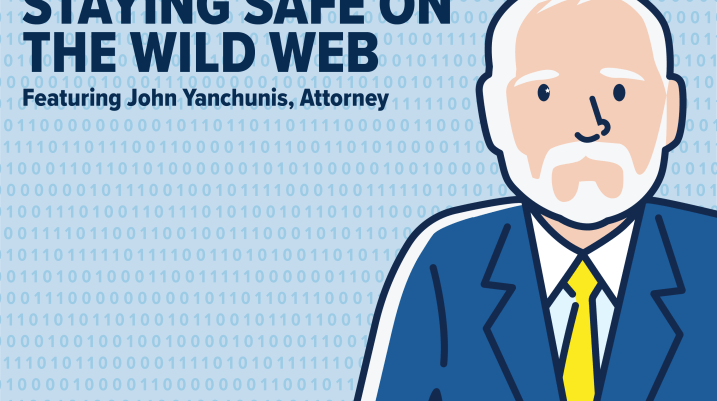John Yanchunis’ Safety Cheat Codes

1. Make sure the privacy settings on your phone, laptop, tablet, etc. are turned on.
Marketers love to know all about you, and so do hackers. Every time you browse the internet or use social media, your information is collected. Not to worry, you can take charge of your information. Go to your privacy settings on all of your devices to access location and data sharing options and be sure they are set to your personal preferences.
2. Make Sure Your Internet Connection is Secure.
Public WiFi networks, such as the free WiFi offered at coffee shops or airports, offer you no direct control over their security. Make sure you are connected to a secure WiFi network before providing private information such as your bank account number.
To increase the security level of your connection, download a VPN (virtual private network), such as NordVPN, for free online. Connecting via a VPN helps ensure that no one can monitor or access the data that you’re exchanging.
3. Be Careful What You Download
One of the top tactics that cybercriminals love to use is tricking people into downloading malware. Malware (malicious software), is software designed to steal information from your computer or corrupt your personal files.
Malware can be disguised as an app, from a popular game to something that checks traffic or the weather. Always be sure to only download apps from the verified App Store or Google Play Store and if you don’t already recognize the program, look into it to ensure that it’s trustworthy.
4. Choose Strong Passwords
Passwords are one of the biggest weak spots in the entire internet security structure, but there’s, unfortunately, no way around them (yet). Passwords like “password” or “12345” might be easy to remember, but they’re also incredibly easy for hackers to guess.
A strong password is one that is unique and complex—at least 15 characters long, with a mix of letters, numbers, and special characters. If you’re worried about remembering them all, software like Google Password Manager can help you manage multiple passwords across different sites. It’s also helpful to change your passwords every few months to increase your personal security.
5. Make Online Purchases From Secure Sites
In order to make any online purchase, you must provide a credit card or banking information —just what cybercriminals are most eager to get their hands on. Be sure to only supply this information to sites that provide secure, encrypted connections.
To be safe, rust reputable and well-known sites that are commonly used and easily recognizable, like bestbuy.com. Another form of protection is using a trusted payment system like PayPal or Apple Pay.
Injured? Getting the compensation you deserve starts here.

Injured?
Not sure what to do next?
We'll guide you through everything you need to know.